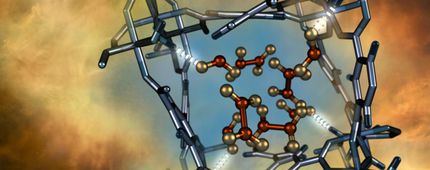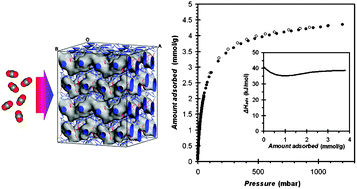Queen’s develops new environmentally friendly MOF production method
Advertisement
Chemists at Queen’s University Belfast have devised a novel, environmentally friendly technique, which allows the rapid production of Metal-Organic Frameworks porous materials (MOFs).
These revolutionary nanomaterials have the potential to transform hazardous gas storage, natural gas vehicles and drug delivery and have the highest surface-area of any known substance.
A sugar-lump sized piece of MOF material can have the same surface area as a football pitch.
Until now MOF manufacturing techniques have been limited as they are costly, slow and require large quantities of solvents, which can be toxic and harmful to the environment.
Now, Professor Stuart James in Queen’s School of Chemistry and Chemical Engineering has patented a novel technique for the synthesis of MOFs, allowing affordable, large-scale deployment of these ground-breaking materials for the first time.
Professor James said: “Because of their extremely large surface-areas and the flexibility with which their properties can be varied, MOFs can be used as sponges, to soak up and store gases, or as filters to separate and capture specific gases and chemicals. For example, they can be used to greatly increase the storage capacity of gas tanks.
“Now, for the first time, our patented technology allows the synthesis of MOFs without using any solvents, even water, and on greatly reduced timescales, by making use of mechanochemistry.
“By simply grinding together two cheap precursors in a basic milling machine, the MOF material is produced in a matter of minutes, in a powder form, ready for applications without further treatment, and without generating solvent waste.”
CEO of MOF Technologies, Tom Robinson added: “The potential for this technology is huge. Industry has known for some time about the incredible properties of MOFs and hundreds of millions of dollars are being spent on their development in research labs around the world. We can now manufacture these materials in a scalable and environmentally-friendly way, unlocking their potential to transform the transport, gas storage and medical industries in the years to come.”
One of the first areas expected to benefit from the technology is the production of natural gas vehicles (NGVs).
Becoming increasingly popular due to a number of key advantages over conventional, gasoline-fueled vehicles (natural gas is currently half the price of petrol per mile travelled), NGVs still have issues around storage and refueling. Typically, natural gas is stored at very high pressures - up to 300 atmospheres – meaning heavy, cylindrical steel storage tanks are required. These must be filled at special refueling stations using large, expensive and power-hungry compressors.
MOF Technologies is also hoping to exploit opportunities in global carbon capture, hazardous gas storage, natural gas processing and hydrocarbon separations.



























































